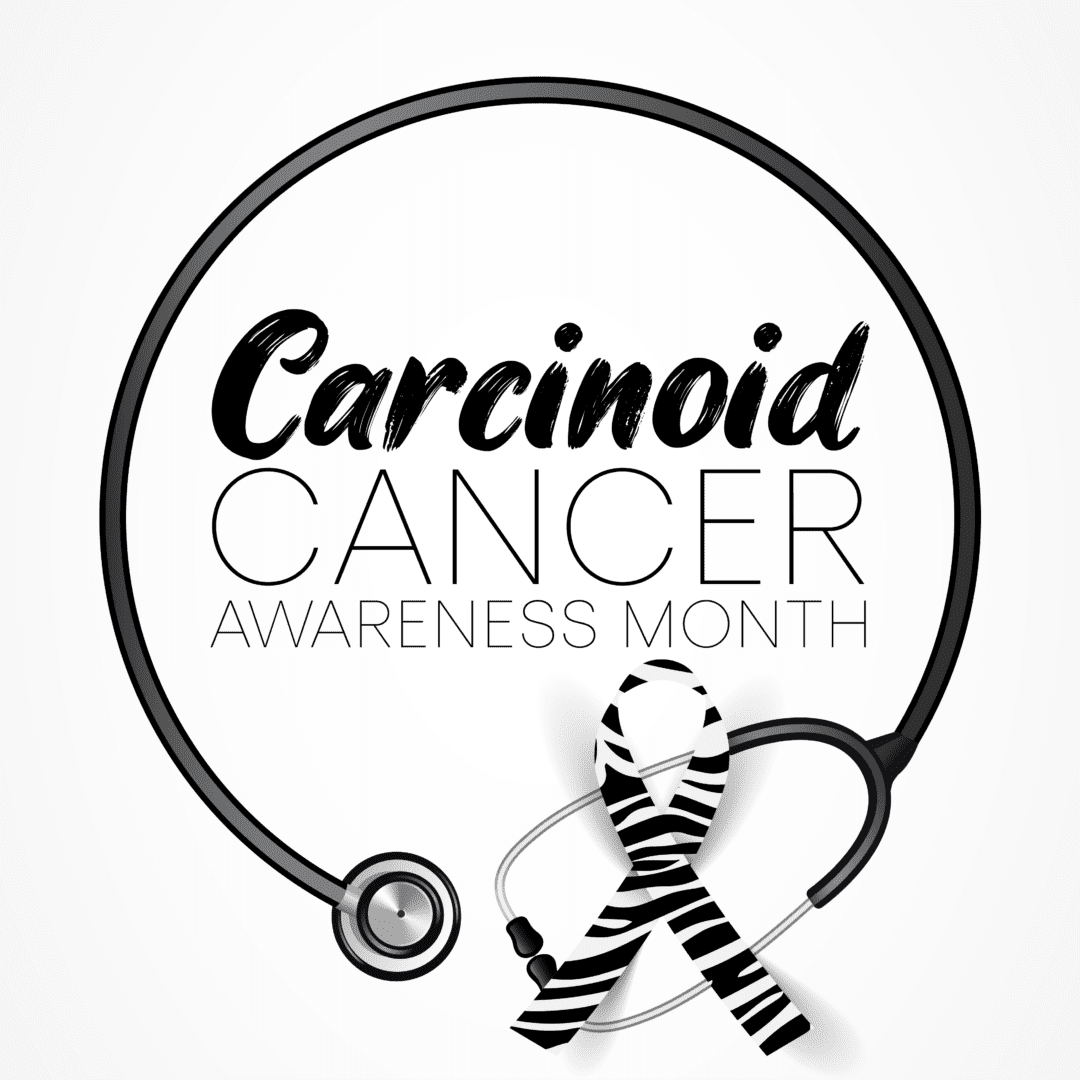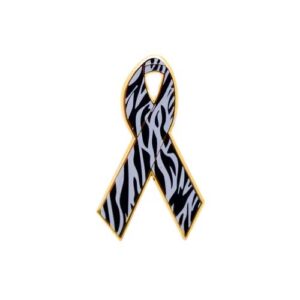
Carcinoid Tumor Awareness Month
November is Carcinoid Tumor Awareness Month. Since carcinoid tumors are the most common type of neuroendocrine tumor, the entire month is dedicated to raising awareness. Carcinoid tumors grow in the neuroendocrine system. They are different from other forms of cancer that form in the GI tract or lung tissue. Wear a zebra awareness ribbon pin to raise awareness for Carcinoid Tumor Awareness Month. Zebra enamel awareness ribbon pins are available in both a non-personalized or personalized version.
Wear a Zebra Pin to Raise Awareness for Carcinoid Tumor Awareness Month
Carcinoid cancer is a type of neuroendocrine cancer that grows from neuroendocrine cells. Neuroendocrine cells occur in organs throughout the body. These cells send and receive messages through hormones to help the body function. In addition, carcinoid tumors grow very slowly. Carcinoid tumors are rare, making up one-half of 1% of all cancers. The average age of onset is the early 60s.
For example, in children and adults, carcinoid cancers often occur in the appendix (appendiceal carcinoid tumors). Bronchial tumors often occur in the lungs. In adults, carcinoid tumors often occur in the digestive tract. Tumors may spread to other parts of the body but more frequently occurs in adults than in children.
There are several main types of carcinoid cancer:
- Slow-growing cancer: These tumors are the most common type and usually remain small, grow quickly, or spread to other areas of the body.
- Faster-growing cancer: It may grow more rapidly, grow larger, and spread.
- Hormone-secreting cancer: These functioning carcinoid tumors produce hormones including serotonin and cause the symptoms of cancers.
Carcinoid Cancer Symptoms and Signs to Know During Carcinoid Cancer Awareness Month:
The common sign and symptoms of carcinoid cancer are:
- Skin flushing.
- The skin turns pink, red, or purple.
- Facial skin lesions.
- Diarrhea.
- Difficulty breathing or wheezing.
- Rapid heartbeat.
- Sudden drops in blood pressure.
- Abdominal pain or pressure.
- Chest pain.
- Cough.
- Weight loss.
Risk Factors for Carcinoid Cancer:
- Age: Adults are more likely to be diagnosed with carcinoid cancer.
- Sex: Women are more found than men to develop carcinoid tumors.
- Family history. A family history of multiple endocrine neoplasias, type 1 (MEN 1), increases the risk of carcinoid tumors. In people with MEN 1, multiple tumors occur in glands of the endocrine system.
- Race: African Americans.
- Genetic syndromes: These include Tuberous sclerosis complexes, Von Hippel Lindau disease, and Familial small intestinal neuroendocrine tumor.
- Tumors of the stomach: Atrophic gastritis, Pernicious anemia, Zollinger-Ellison syndrome.
How common are they?
Each year, about 8,000 adults in the United States (0.002% of the current US population) are diagnosed with a carcinoid tumor. The most common place for this type of tumor is the small intestine. People are most often diagnosed in their early 60s.
Are they curable?
These tumors often grow slowly, and doctors often find them when they’re at an early stage, which makes them easier to treat. Carcinoid tumors can be benign (non-cancerous) or malignant (cancerous).
- Benign carcinoid tumors are typically small and usually can be removed completely and, in most cases, they do not come back.
- Cells from benign carcinoid tumors do not spread to other parts of the body.
- The 5-year survival rate for people with a GI tract carcinoid tumor that has not spread to other parts of the body ranges from 65% to 90%, depending on the stage and location of the tumor.
- If the tumor has spread (malignant) to nearby tissue or the regional lymph nodes, the 5-year survival ranges from 46% to 78%. If the tumor has spread to distant areas of the body, survival rates range from 14% to 54%.



